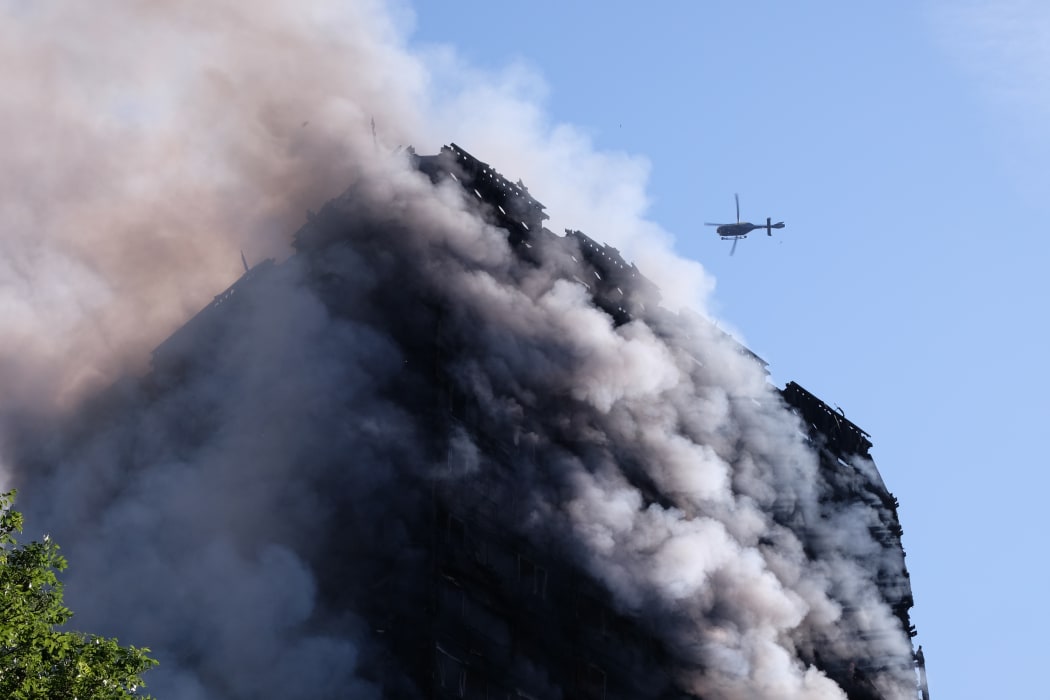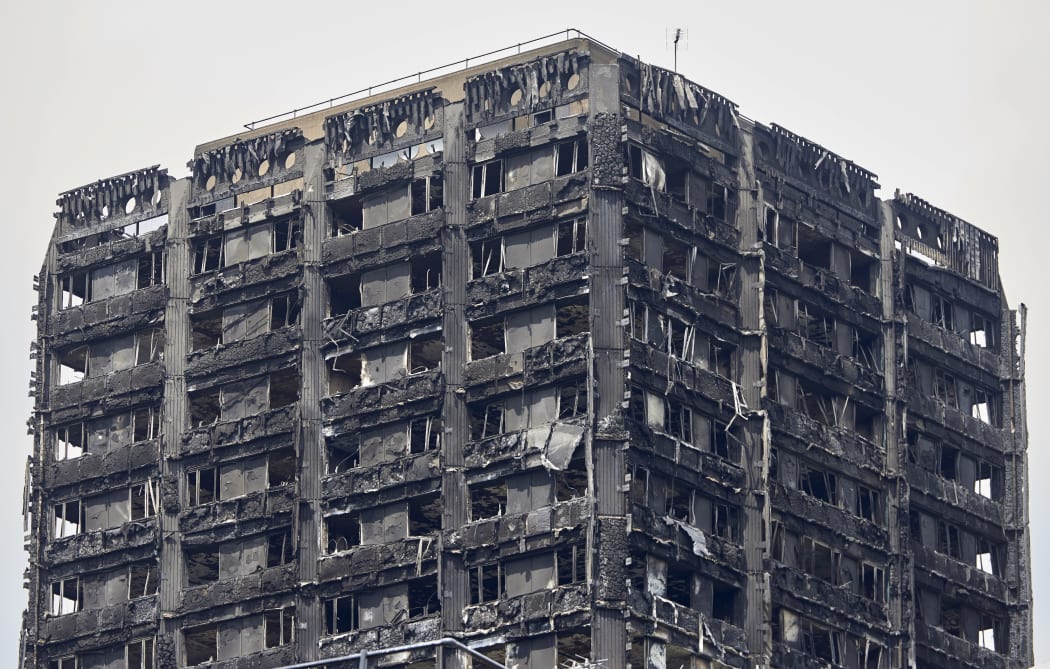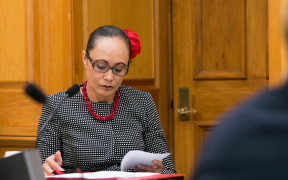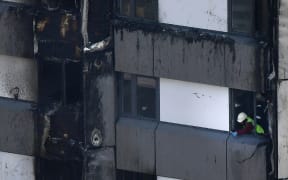A leading engineer who ran an audit in New Zealand prompted by the Grenfell Tower fire is accusing ministry officials of failing to act over what he says are potentially unsafe building panels.

Flames and smoke engulf Grenfell Tower, a residential block of flats in west London on June 14, 2017. The fire caused 71 deaths. Photo: AFP
Dr Tony Enright called late last year for the suspension of a system for approving aluminium composite panels on high-rise buildings. The FR panels commonly used in New Zealand are not as combustible as those on the London tower that burned a year ago, and resulted in 71 deaths.
Australia's federal building regulator also commissioned Dr Enright and two other engineers to do a similar audit. It recommended the withdrawal of its certifications for FR panels, but that has not happened.
The ministry did not take his advice and instead audited the review, which the ministry refused to release to RNZ.
"The reason for withholding the peer reviewer's report in full is because MBIE (Ministry of Business, Innovation and Employment) is still in the process of validating this information in order to make a final decision concerning possible suspension or revocation of the CodeMark certificates in question," a ministry spokesperson said.
Construction Minister Jenny Salesa said withholding of the peer review was an operational matter that she could not comment on.
That refusal has prompted Dr Enright to speak out and comes in the same week as the Grenfell Tower fire inquiry opened in London.

The charred remains of clading are pictured on the outer walls of the burnt out shell of the Grenfell Tower block in north Kensington, west London on June 22, 2017. Photo: AFP
There was no excuse not to suspend the certificates for the FR panels while the ministry considered what to do next, Dr Enright said.
"Every day, every week and every month that ticks by, more and more of these CodeMark certificates are being relied on.
"There's been a fault in process which has led to, in my view, an unsuitable product being used on high-rise construction."
The MBIE said it had "not been identified that public safety is in jeopardy".
"There is no evidence to date that says the products alone are unsafe, but as part of MBIE's internal validation process, the products' safety [will] also be assessed."
Dr Enright disagreed: "The type of cladding that was on Grenfell was gradually phased out over the last few years but unfortunately the replacement product [FR panel] is, in my view, unsuitable as well - it also sustains vertical fire spread, although with less intensity."
Dr Enright's November report was leaked to RNZ last month. In it, he cited tests commissioned by the British government post-Grenfell, which found FR panel failed external fire-spread standards if put on top of flammable insulation.
Dr Enright faulted the panels because they could catch fire. The MBIE, which commissioned his audit, said Dr Enright exceeded his brief stating that.
Regulators in Australia and the MBIE run the CodeMark scheme that accredits the certifiers of building products. All certification in New Zealand for FR panel are issued by a Queensland called CertMark.
The ministry delayed the peer reviewer of Dr Enright's report for three-and-a-half months despite the audit being urgently sought after Grenfell.
The ministry said this was because it sought CertMark's opinion. It did not explain to RNZ why it did not immediately call in a peer reviewer in late 2017.
"There is a level of scrutiny assumed from the CodeMark scheme and my audit found that scrutiny wasn't taking place," Dr Enright said.
CertMark has rejected the audit.
MBIE first commissioned Dr Enright to look into cladding almost four years ago after the rapid-spreading Lacrosse apartment fire in Melbourne.
At least 13 Auckland buildings have the highly combustible PE composite cladding that the Grenfell Tower and Lacrosse had. Another 42 have FR, and it is unsure which of the two types a further 70 buildings have (Auckland Council is still checking). In Wellington, 103 buildings have composite panel cladding, though the council is not sure which type.
MBIE and both councils said there were no concerns over other buildings, which had other fire protection such as sprinklers.
Suspending use of panels is not the same as a ban
Dr Enright said suspending the certificates would not mean a ban on the panel.
"It's taking a precautionary approach. The product could still be used but it would be required to receive a level of scrutiny via engineering analysis and council checking."
However, the ministry said a suspension for every aluminium composite panel in New Zealand "would have considerable practical, reputational and commercial consequences" for suppliers and certifiers.
Ms Salesa was questioned in Parliament by National last month about the Enright audit, and said then that a Grenfell-type fire was not likely in New Zealand as standards were higher here.
MBIE spokesperson said it "would not hesitate" to suspend a certificate if panels did not comply with the Building Code."
Meanwhile, British insurers are demanding a ban on combustible cladding on high rises - including the kind known as FR that is widely used in New Zealand.
Laura Hughes from the Association of British Insurers said it strongly believed that all combustible materials should not be allowed on the outside of a building. If something is of limited combustibility it could still burn and therefore was still a danger to the people who were living or working in those buildings.
"This is probably more costly but is also going to prevent a tragedy like Grenfell happening again anywhere else in the world."
Ms Hugh said the Association commissioned its own checks on the testing regime that was supposed to ensure combustible panels were safe enough to use for cladding and found it was not fit for purpose.





